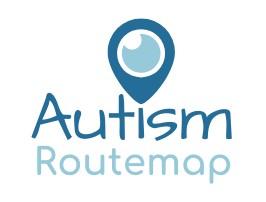Rethink your Routine: How to Turn Groggy Mornings into Great Ones

Does your day start with an inward groan as you long for just a few more minutes under the covers? Are you reaching for your phone before you’ve even left your bed, only to stumble out of the house feeling like a zombie in desperate need of coffee?
Mornings are tough, we get it
Mornings can be chaotic. There’s so much to do in so little time. Even though research highlights the benefits of morning and evening routines, only 28-35% of us actually use them.
Maybe we’re unaware of the benefits or perhaps we’re just juggling too many balls in the air. After all, some of us have families to feed, dress and herd out the front door. Others are burning the candle at both ends, with energy levels that only surface after the first shot of caffeine.
So, why bother with routines?
With all these barriers, why would you even bother with routines? Do they really give us much return on our investment of time and energy?
Well the evidence suggests they do. In fact, routines can significantly enhance our productivity, mental health and overall well-being.
The benefits of a routine
Morning routines set the stage for a successful day. They can lift our mood, increase our energy and enhance our cognitive performance. Evening routines help us transition into a restful state, promoting better sleep quality which in turn promotes cognitive function, productivity and mood the following day.
Like two bookends on a bookshelf, routines structure our day and keep us in a state of balance and productivity.
What makes a good routine?
A good routine involves activities that target different aspects of our being: mind, emotions, body and spirit. The key is to set a routine that works for you. One that takes into account your unique circumstances rather than trying to mould yourself to someone else’s ideal.
Routines should also be flexible. They are a structure that can be adapted not a prison that constricts you.
Wave goodbye to the chaos: An adaptable routine
Below is a simple outline of a morning and evening routine which you can adapt and add times to suit your unique needs:
Morning Routine:
- Wake up: Think of 3 things you’re grateful for.
- Hydrate: Drink a glass of water.
- Gentle exercise: Get moving with some light exercise accompanied by music to boost energy or a podcast for a learning opportunity.
- Quieten: Spend some time in stillness through prayer or meditation.
- Tune in: Tune into your emotional state and take stock through journalling.
- Productive thinking: Plan and review your actions for the day, mark wins from the previous day and identify areas for growth.
- Personal care: Take a shower / bath and get dressed.
- Nutrition: Eat a nutritious breakfast.
Evening Routine:
- Wrap up work: Review actions from the day and set new to-dos for the next day.
- Connect with family: Spend some quality time together.
- Eat dinner: Enjoy a meal.
- Set the mood: Dim the lights and use aromatherapy scents if you like.
- Relax: Read or watch TV for 30 minutes.
- Unplug: Disconnect from technology.
- Personal care: Take a warm bath or shower and follow your skincare routine.
- Prepare for tomorrow: Choose clothes for the next day.
- Wind down: Listen to music or read.
- Lights out: Reflects on 3 things you’re grateful for, then pray or visualise a happy place as you fall asleep.
Make the change today
I hope this has inspired you to make some tweaks to your routine so you can derive the benefits for yourself.
If you need some help getting started, consider using our journal-planer to help with reflections and planning.
Remember routines aren’t about rigidity. They’re about creating a rhythm that suits your life. So go ahead, reclaim your mornings and maybe even banish that inward groan for good!

Linda Philips
MSc. Human Communication
Linda empowers and equips neurodivergent people to communicate effectively, cultivate fulfilling relationships and enhance overall wellbeing. She also provides businesses with neurodiversity training to help them better understand and support neurodivergent employees.
Disclaimer:
This blog post is intended for educational purposes and should not be taken as medical or therapeutic advice. If you need medical or therapeutic support, please consult your medical practitioner.
Looking for more help?
- Grab a copy of our free guide: Life After an Adult Autism Diagnosis - Breaking free from the cycle of confusion and defeat.
Click HERE to get your copy.
- Work with me directly: If you want to fast track your progress with one to one coaching / therapy or training, schedule a free call to discuss the options that are available.
Click HERE to book your call.


